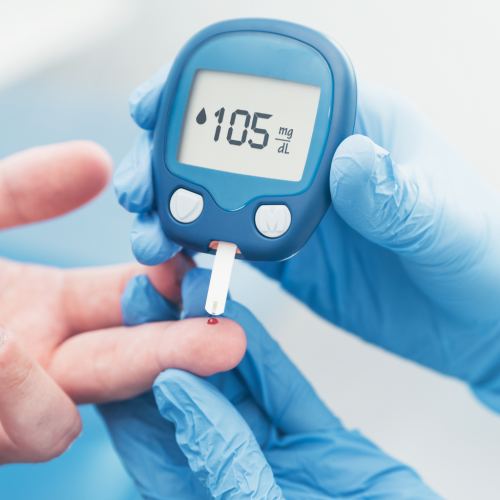Diabetes Management in Kharadi, Pune
Diabetes is a long-term condition where blood sugar levels remain higher than normal. At Dr. Lakhe’s Healthcare Centre, we provide comprehensive diabetes care- from early detection to long-term management- helping patients maintain a healthy, active lifestyle.

Symptoms & Signs
Watch out for these common warning signs that may indicate an underlying health condition such as diabetes. Recognizing them early can help you seek timely medical advice and prevent complications.
Frequent Urination
Lack of strength
Blurred Vision
Delayed Healing
Unexplained weight change
Excessive thirst or hunger
Causes / Risk Factors
Certain risk factors can increase your chances of developing diabetes. Being aware of them can help you take proactive steps towards prevention and better health.
- Family history of diabetes
- Overweight or obesity
- Sedentary lifestyle
- Poor dietary habits
- High blood pressure or cholesterol
Diagnosis at Our Clinic
We diagnose diabetes with fasting blood sugar, HbA1c, glucose tolerance tests, and continuous monitoring, detecting early signs and guiding you toward the right treatment and lifestyle changes.
Why Choose Dr. Lakhe’s Healthcare Centre
Extensive Health Care Experience
20+ years of expertise in chronic disease management
Cutting-Edge Medical Diagnostics
Advanced diagnostic and continuous monitoring facilities.
Personalized Medical & Health Care
Patient-focused, tailored treatment and recovery plans.
Accessible & Convenient Location
Prime location in Kharadi, Pune with easy appointment booking
Book Your Diabetes Consultation Today
Don’t wait until it’s too late- take control of your blood sugar now. Book your appointment with Dr. Mahesh Lakhe at Dr. Lakhe’s Healthcare Centre, Kharadi, Pune.
📞 Call: +91 9607025977
FAQ's
Frequent urination, excessive thirst, unexplained weight loss, blurred vision, and fatigue are common signs.
There is no permanent cure, but with proper treatment, diet, and lifestyle management, blood sugar levels can be controlled effectively
Your doctor will recommend the frequency based on your condition, but many patients check daily or several times a week.
Some patients can manage type 2 diabetes with diet, exercise, and weight control, but others may require medication or insulin.
Genetics can play a role, but lifestyle factors like diet, activity, and weight also significantly affect risk.
